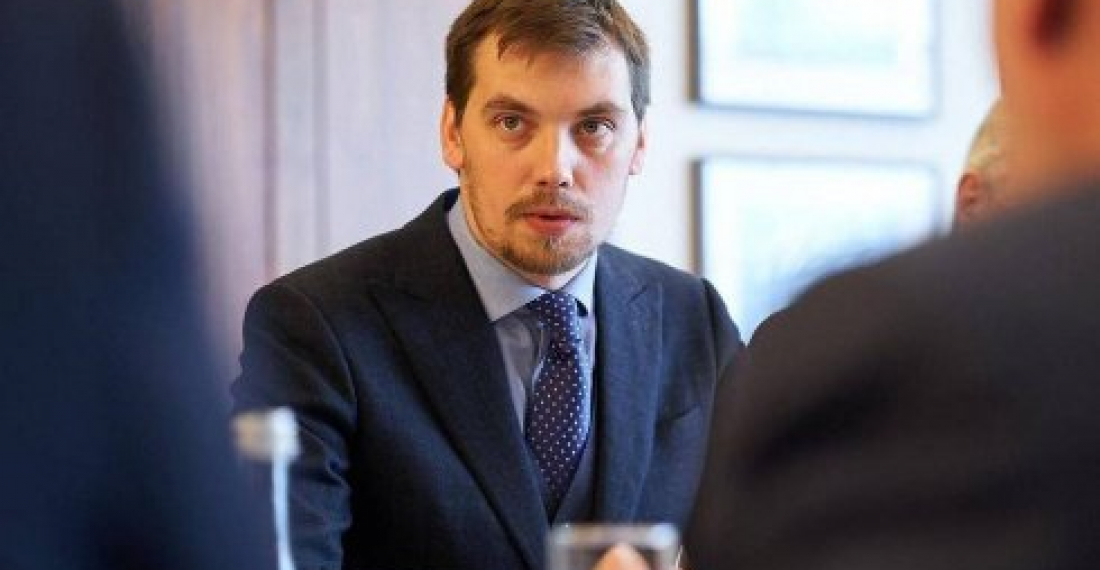The Ukrainian parliament, the Vekhrovna Rada, has approved the new Ukrainian government consisting of 15 ministers and two deputy prime ministers. The new government takes over following recent presidential and parliamentary elections and complete the transition from the government of Petro Poroshenko to that of Vlodimir Zelenskiy.
Parliament first approved the nomination of Alexei Goncharuk as prime minister, Vadim Pristayko as Foreign Minister and Andrey Zagorodnyuk as Defense Minister. It is the prerogative of the president to nominate these ministers. The new prime minister then proposed the rest of the Cabinet.
The ministries of energy and ecology were merged into one, as well as ministries of economy and agricultural policy; ministries of youth and sports and culture; ministries of veterans and uncontrolled territories.
Interior Minister Arsen Avakov kept his position, along with Finance Minister Oxana Makarova. All other members of the cabinet of ministers are new appointees.
Dmitry Kuleba was appointed as Deputy Prime Minister for European and Euro-Atlantic integration, Mikhail Fedorov - as Deputy Prime Minister for Digital Information.
Timofey Milovanov was appointed as Minister of Economic Development, Trade and Agriculture; Alexey Orzhel - as Minister of Energy and Environmental Protection; Vladislav Krikliy - as Minister of Infrastruture; Alena Babak - as Minister of Communities and Territories; Anna Novosad - as Minister of Education and Science; Zoryana Skaletskaya - as Minister of Healthcare; Vladimir Borodyansky - as Minister of Culture, Youth and Sport; Yulia Sokolovskaya - as Minister of Social Policy; Oxana Kolyada - as Minister of Veteran Affairs and Uncontrolled Territories; Denis Malyuska - as Minister of Justice.
Speaking prior to his approval by parliament, incoming prime minister Goncharuk declared that he saw the Ukrainian economy's growth as the chief task of his Cabinet on the way to resolving all of the country's other problems. He acknowledged that the new government would have a very hard time.
"You all know our problems: the debts we have inherited, the ruined infrastructures and the war in the east," Goncharuk said. "And we still have corruption. We remain unable to eliminate a situation where the one who rises to power hurries to lay hands on anything that comes his way."
Smuggling, he said, is another major problem, which "must disappear by the end of this year." The new government is faced with the task of achieving economic growth, which is the most important task of all. "We should be growing not by 2%-3%, but at least by 5%-7% a year," Goncharuk said. "This will bring us closer to a level that is regarded as normal in the world."
Another major task Goncharuk mentioned is changing the world's attitude to Ukraine.
"It's about image," he said. "Our credit rating speaks for itself. This should be done as quickly as possible. Cooperation with partners must become the basis for such changes."
Goncharuk said a mission of the International Monetary Fund would visit Kiev within weeks to discuss the conditions of a new cooperation program, extended over three to four years.
As for the situation in the east of Ukraine, Goncharuk said that he saw a solution of this issue including war in economic growth. At the same time he believes it is important to enhance Ukraine's defense capability.
"On the one hand, the army is to equipped properly. On the other hand, investment must be made into the war-stricken regions. We've got to see what we should do to demonstrate we are strong enough to keep enemies away from our land," Goncharuk said.
The new government stated that European and Euro-Atlantic integration remain the key pillar of the country's foreign policy.
source: commonspace.eu with agencies
photo: New Ukrainian prime minister, Alexei Goncharuk (picture courtesy of TASS news agency, Moscow)






